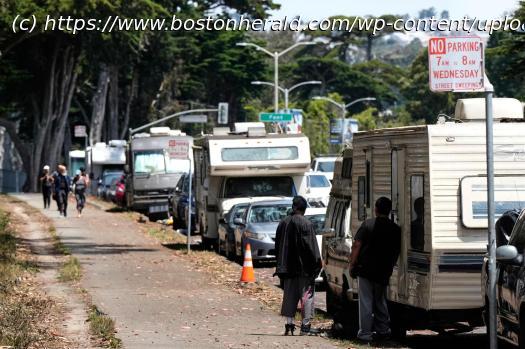San Francisco is set to ban homeless people from living in RVs with a new citywide parking limit on large vehicles. This is part of the mayor’s pledge to clear San Francisco’s streets.
San Francisco is set to ban homeless people from living in RVs by adopting strict new parking limits the mayor says are necessary to keep sidewalks clear and prevent trash buildup.
The policy, up for final approval by San Francisco supervisors Tuesday, targets at least 400 recreational vehicles in the city of 800,000 people. The RVs serve as shelter for people who can’t afford housing, including immigrant families with kids.
Those who live in them say they’re a necessary option in an expensive city where affordable apartments are impossible to find. But Mayor Daniel Lurie and other supporters of the policy say motor homes are not suitable for long-term living and the city has a duty to both provide shelter to those in need and clean up the streets.
“We absolutely want to serve those families, those who are in crisis across San Francisco,” said Kunal Modi, who advises the mayor on health, homelessness and family services. “We feel the responsibility to help them get to a stable solution. And at the same time, we want to make sure that that stability is somewhere indoors and not exposed in the public roadway.”
Critics of the plan, however, say that it’s cruel to force people to give up their only home in exchange for a shot at traditional housing when there is not nearly enough units for all the people who need help; the mayor is only offering additional money to help 65 households.
Jennifer Friedenbach, executive director of the Coalition on Homelessness, says city officials are woefully behind on establishing details of an accompanying permit program, which will exempt RV residents from parking limits so long as they are working with homeless outreach staff to find housing.
“I think that there’s going to be people who lose their RVs. I think there’s going to be people who are able to get into shelter, but at the expense” of people with higher needs, like those sleeping on a sidewalk, she said.






